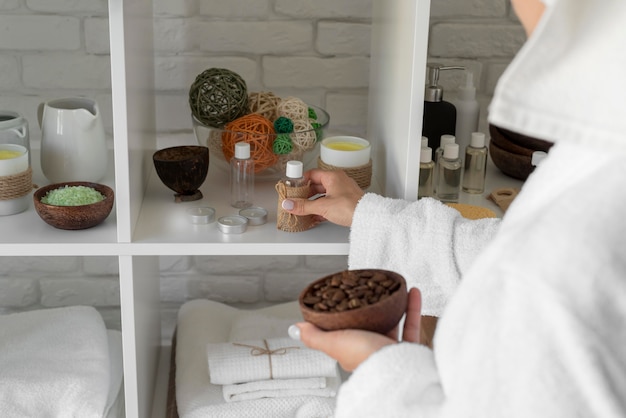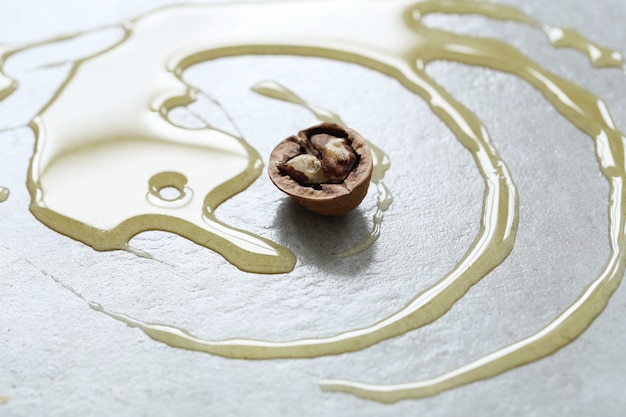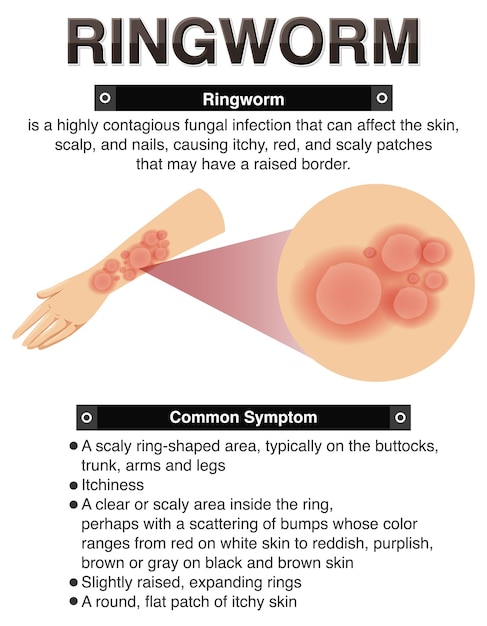
Essential oils can be a great addition to your bathroom routine, thanks to their therapeutic properties. However, it’s crucial to know how to use them safely and which ones are suitable for bathroom use.
Using Essential Oils in the Bath Tub
Essential oils can help with various issues like arthritis, chronic pain, colds, skin inflammation, and itching. For skin issues, you might want to use cooler water than usual. Start with a low dilution (1%) to see how your skin reacts.
You can mix essential oils with sea salts, Epsom salts, or other mineral salts, or combine them with a carrier oil to make a bath oil. Always add a dispersant, like bath gel or polysorbate, to help the oil and water mix safely.
Good essential oils for the bath include:
– Lavender
– Roman chamomile
– Rose
– Geranium
– Frankincense
– Neroli
Avoid skin-sensitizing oils like ginger, peppermint, cinnamon, and tea tree.
Using Essential Oils in the Shower
Essential oils can also be used in the shower, especially for respiratory issues. The steam helps to clear blocked airways. You can add essential oils to a shower gel base or make an aromatherapy shower bomb with ingredients like bicarbonate of soda, citric acid, a carrier oil, arrowroot powder, and essential oils.
Place the shower bomb in a dish on a shelf where it will get wet enough to release the oils but not dissolve too quickly. Run the shower at a hot temperature first to build up steam.
Good essential oils for respiratory conditions include eucalyptus, peppermint, lemon, and myrtle. For a morning boost, try rosemary or clary sage. Start with a 1% dilution and increase to 3% for short-term use.
Adding Essential Oils to Shower Gel or Soap
To add essential oils to a shower gel or soap, buy an unscented base product like castile soap. Suitable essential oils for daily use include lavender, tea tree, geranium, and lime. Use at a 2% dilution rate.
Aromatherapy Bathroom Spray
You can make a deodorizing spray by adding essential oils to distilled water or using a hydrosol. If you use essential oils, add a dispersant to mix them with the water. Use a 3-5% dilution rate if not spraying directly on the skin and if there are no vulnerable individuals at home.
Hydrosols are plant-distilled water products and can be used directly or blended. Use a glass spray bottle to disperse the blend into the air to freshen up the bathroom.
Recommended essential oils for a bathroom spray include rosemary, Scotch pine, and lime. Hydrosols like Douglas fir, tulsi, or thyme can also be used.
Using Essential Oils as a Cleaning Product
Essential oils can also be used to clean bathroom surfaces. Mix them in a spray bottle with distilled water or white vinegar. Use a 3% dilution rate. Good oils for cleaning include lavender, lemon, and sage. Always consult a certified aromatherapist if unsure.
Cautions for Using Essential Oils in the Bathroom
Always check the cautions for each essential oil, safe dilution rates, and how to mix them properly. Babies, children, seniors, pregnant women, and those with chronic illnesses may need lower dilution rates or should avoid certain blends altogether.
When used safely, essential oils can enhance your bathroom experience with their pleasant aromas.



